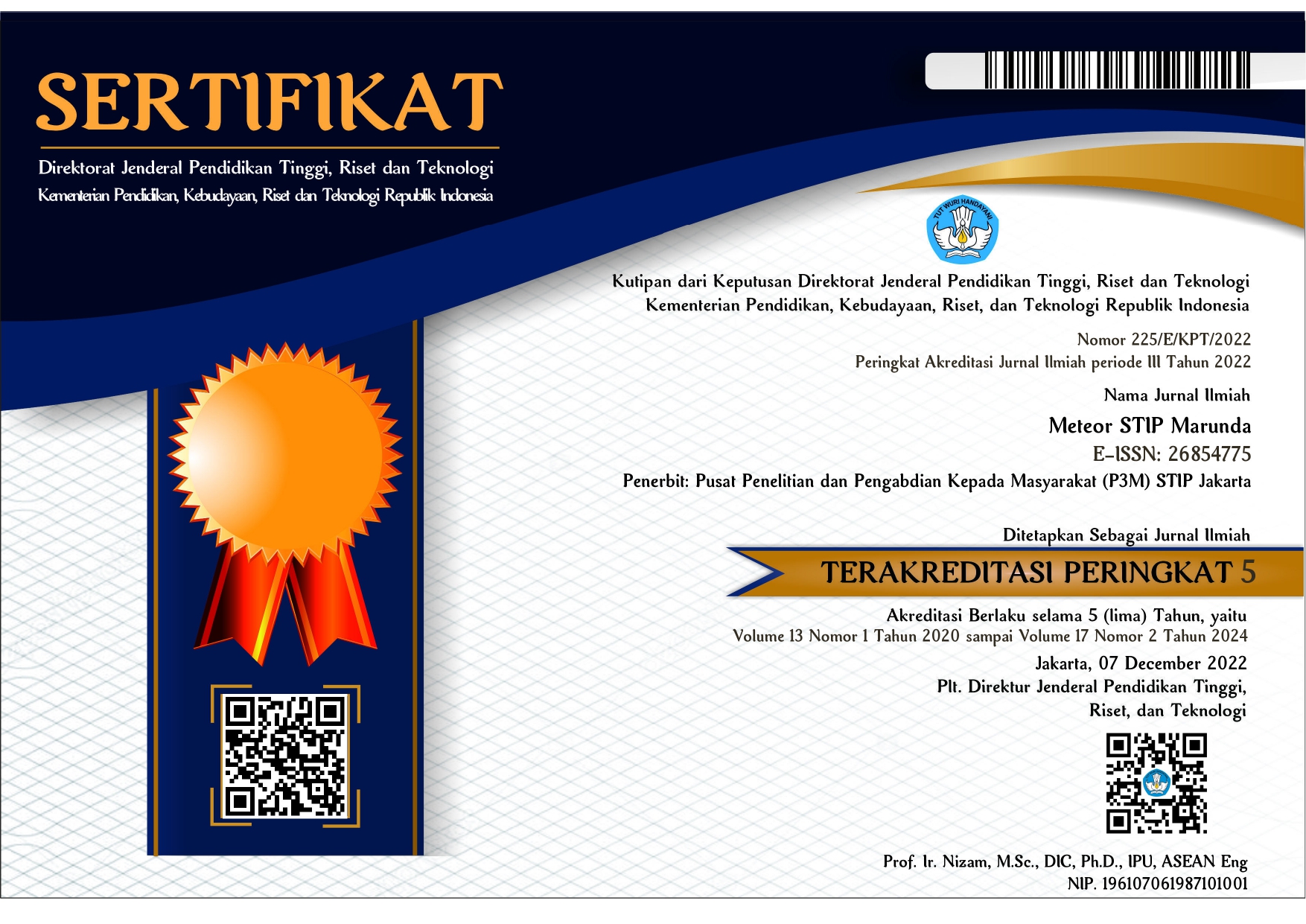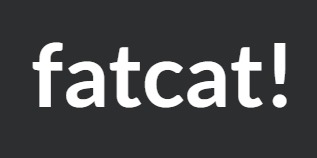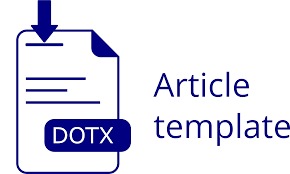EMPOWERING LITERACY IN MARITIME EDUCATION: STRATEGIES AND PROFESSIONALISM ALIGNMENT
Abstract
This research investigates language instruction strategies and professionalism alignment within maritime education, focusing on 45 junior cadets. Through qualitative analysis, findings reveal varying language proficiency levels among cadets, with a predominant need for technical terminology mastery and communicative competence. Additionally, cadets emphasize the importance of practical learning experiences, such as shipboard training, and the integration of cross-cultural competence training. The research highlights the alignment between language instruction practices and international standards, notably the International Maritime Organization's (IMO) Standards of Training, Certification, and Watchkeeping (STCW) convention. Moreover, professionalism attributes, including safety awareness, ethical conduct, and leadership skills, are identified as integral components of maritime education. Recommendations include the integration of specialized language resources, continuous evaluation of instructional practices, and the promotion of ethical leadership. By addressing language instruction needs and professionalism requirements, maritime education institutions can enhance cadets' readiness for successful careers in the maritime industry.
References
S. Saray, T. Satır, and N. Dogan-Saglamtimur (2021). Proficiency of Maritime English course: An investigation in Istanbul, Turkey,Herit. Sustain. Dev., vol. 3, no. 1, pp. 6–15.
D. Wu (2023). Exploring digital literacy in the era of digital civilization: A framework for college students in China, Information Services & Use. IOS Press, pp. 1–23. doi: 10.3233/isu-230199.
G. Vivanet. The Routledge Handbook of Corpus Linguistics, Consult. Ed., p. 183.
K. Cicek, E. Akyuz, and M. Celik (2019). Future skills requirements analysis in maritime industry,Procedia Comput. Sci., vol. 158, pp. 270–274.
O. Dyagileva, N. Goridko, H. Popova, S. Voloshynov, and A. Yurzhenko (2020). Ensuring sustainable development of education of future maritime transport professionals by means of network interaction.
N. Demydenko (2012). Teaching maritime English: A linguistic approach, J. Shipp. Ocean Eng., vol. 2, no. 4, p. 249.
R. Ahmmed (2021). A framework for Maritime English language planning in Bangladeshi maritime education and training institutes, SN Soc. Sci., vol. 1, no. 7, p. 168, Accessed: Jan. 10, 2024. [Online]. Available: https://doi.org/10.1007/s43545-021-00188-5
P. Trenkner (2009). Maritime English requirements and the revised STCW, in Szczecin: Proceedings of the International Maritime English Conference IMEC, vol. 21, pp. 5–10.
Z. H. Munim, M. Dushenko, V. J. Jimenez, M. H. Shakil, and M. Imset (2020).Big data and artificial intelligence in the maritime industry: a bibliometric review and future research directions,” Marit. Policy Manag., vol. 47, no. 5, pp. 577–5.
M. Plaza-Hernández, A. B. Gil-González, S. Rodríguez-González, J. Prieto-Tejedor, and J. M. Corchado-Rodríguez (2021). Integration of IoT technologies in the maritime industry, in Distributed Computing and Artificial Intelligence, Special Sessions, 17th International Conference, pp. 107–115.
C. Kinginger (2013). Social and Cultural Aspects of Language Learning in Study Abroad, vol. 37. Amsterdam: Amsterdam: John Benjamins Publishing Company.
S. C. E. IMO (2018). IMO. London.
D. House and F. Saeed (2016). The seamanship examiner: for STCW certification examinations. Taylor & Francis.
S. S. Abila (2016).The occupational socialisation of merchant marine cadets in the Philippines. Cardiff University.
M. E. Manuel (2017).Vocational and academic approaches to maritime education and training (MET): Trends, challenges and opportunities,WMU J. Marit. Aff., vol. 16, pp. 473–483.
R. Kidd and E. McCarthy (2019). Maritime education in the age of autonomy, WIT Trans. Built Environ., vol. 187, pp. 221–230.
Y. Lau and A. K. Y. Ng (2015). The motivations and expectations of students pursuing maritime education, WMU J. Marit. Aff., vol. 14, pp. 313–331.
T. Albayrak and R. Ziarati (2012). Encouraging research in maritime education & training, J. Marit. Transp. Eng., vol. 1, no. 1, pp. 4–9.
D. Gavalas, T. Syriopoulos, and E. Roumpis (2022). Digital adoption and efficiency in the maritime industry, J. Shipp. Trade, vol. 7, no. 1, p. 11.
Ε. Καλλέργη (2020). Living in a Limbo: The liminal space of maritime english teacher’s professional development.
D. K. Padgett, Qualitative methods in social work research, vol. 36. Sage publications, 2016.
J. W. Creswell and V. L. P. Clark (2011).Choosing a mixed methods design, in Designing and Conducting Mixed Methods Research, California: Sage Publications, Inc., 2011, pp. 53–106.
S. Sarosa (2021). Analisis Data Penelitian Kualitatif. Pt Kanisius.
Y. Wang, L. Kung, and T. A. Byrd (2018). Big data analytics: Understanding its capabilities and potential benefits for healthcare organizations, Technol. Forecast. Soc. Change, vol. 126, pp. 3–13.
J. Katz (2015). A theory of qualitative methodology: The social system of analytic fieldwork, Méthod s African Rev. Soc. Sci. Methodol., vol. 1, no. 1–2, pp. 131–146.
A. Chircop (2015).The international maritime organization.
L. Llosa (2017). Assessing Students’ Content Knowledge and Language Proficiency, Language Testing and Assessment. Springer International Publishing, pp. 3–14. doi: 10.1007/978-3-319-02261-1_33.
E. Johansson (2022). Development of critical thinking and language proficiency among undergraduate Swedish online EFL students, Educare, no. 4. Malmo University, pp. 50–71. doi: 10.24834/educare.2022.4.3.
T. A. Thiel (1996). Maritime English for Communication and Cooperation.
A. Zaderei (2020). Ensuring the sustainability of the human resources management system of maritime industry enterprises, Access Access to Sci. Business, Innov. Digit. Econ., vol. 1, no. 2, pp. 146–156.












_(1)(1).png)

